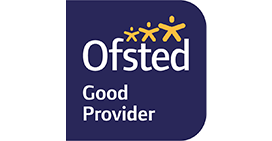Teaching Assistant Standards
Teaching Assistants work in Primary, Special and Secondary education across all age ranges encompassing special educational needs and emotional vulnerabilities. The primary role of the Teaching Assistant is to support the class teacher to enhance pupils’ learning either in groups or individually, ensuring pupils understand the work set, know their learning objectives and stay on task in order to make progress. Promoting self-belief, social inclusion and a high self-esteem play an integral part to pupils’ well-being; ensuring pupils thrive in a positive, nurturing, safe environment. It is an active role supporting the learner to access the curriculum. They are good role models, act with honesty and integrity, take part in team meetings; contribute to planning and class activities. Promoting Fundamental British Values through spiritual, moral, social and cultural development and positive behaviours are crucial in contributing to improved pupil progress and development
Introduction to End-Point Assessment
What is End-Point Assessment?
End-Point Assessment for Teaching Assistant
Our Role as the Independent Training Provider would be to:
• provide on-going training for the apprentice
• provide tools and processes to support the apprentice
• carry out regular reviews with the apprentice and employer
• advise the employer when the apprentice is ready to undertake the EPA
• work collaboratively with the employer on the KSBs of the apprentice
• deliver ‘off the job’ training
• work with the employer to ensure the apprentice stays on track with their learning.
The employer would:
• support ‘on the job’ training and offers relevant experience
• conduct reviews to monitor progress
• determine when the apprentice is ready to attempt the EPA
• perform observations of the apprentice, carried out by competent Teaching Assistants and HLTAs, Line Managers, Class Teachers and Mentors
• work with the training provider (where appropriate and applicable) to carry out a continuous review of the evidence generated by the apprentice as part of the on-programme assessment process
Your role as the apprentice would be to:
• participate fully in your training and development
• actively contribute to their performance review
• contribute to the decision on the timing of their EPA
• meet all Gateway requirements when advised by your employer
• gather evidence from the on-programme training to support the Portfolio of Evidence and Professional Discussion.
 Join our Teaching Assistant on Facebook!
Join our Teaching Assistant on Facebook!





